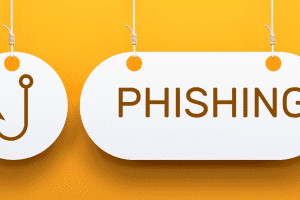
12 Tips for Safer Online Shopping You Need to Know
As the popularity of online shopping continues to grow, it’s important to be aware of the potential risks involved. By taking a few simple precautions, you can help ensure that your online shopping experience is safe and secure.
Online shopping has become a billion-dollar industry. And while most purchases will go without incident, the security on those transactions isn’t guaranteed – which is why these tips can help.
Cybercriminals are always on the lookout for victims, but their activities pick up during the festive season – when online shop is at its peak. Online frauds and scams have become more sophisticated, requiring us to be ever-vigilant especially since we cannot simply rely upon our instincts or convictions alone if something seems off while browsing through websites.
The criminals who conduct these crimes will use any opportunity they can get; including holiday seasons like Christmas Eve or New Year’s Day – which favors them greatly because there is generally an increase in browser usage among those interested parties looking forward toward gifts buying opportunities as well as vacation plans taking shape.
In this blog post, we talk about how to protect your information while shopping online. Below are our 12 online safety tips; use them and you can shop with confidence.
- Use Familiar and popular Websites for online shopping
- Look for the Lock sign
- Do Not Use Public Wi-Fi for Shopping
- Avoid Shopping in Public
- Use a VPN
- Check Statements Regularly
- Track your Stuff
- Enable Two-Factor Authentication on Your Email Account
- Beware of Smishing
- Don’t fall for email scams and Amazing offers
- Pay with credit, not debit
- Keep software and virus protection up-to-date and use strong passwords for online accounts.
1. Use familiar and popular websites for online shopping
When shopping online, it’s best to shop with retailers that you know and trust. Bookmark your favorite sites so they are easy access when looking for something new. Avoid typing in the name of any retailer directly into Google or other search engines as this may lead you down an incorrectly endings website which could give personal information about yourself without permission (e-mail address etc.)
If you’re wary of a website, perform your due diligence. Yelp, Google and Facebook are full of retailer reviews.
2. Look for the Lock Sign
If you’re going to buy something online, make sure it’s from a site with SSL encryption. This will help protect against hackers who want access your personal information and steal any of the data on its server. You’ll know if the site has SSL because the URL for the site will start with HTTPS—instead of just HTTP. An icon of a locked padlock will appear, typically to the left of the URL in the address bar or the status bar down below; it depends on your browser.

HTTPS is now the standard for securely connecting to websites. Even if you’re not doing anything sensitive, it’s comforting knowing that Google Chrome flags any page without this extra S as “not secure.” So, a site without it should stand out even more.
Secure websites are configured to mask the data you share, such as passwords or financial information. Shopping only on secure sites reduces the risk that your private information will be compromised while you shop.
3. Don’t use public wi-fi for shopping. Your standard data connection is more secure.
Public Wi-Fi networks are a danger to your personal information and should be avoided at all costs. These free internet connections have little security, making them easy targets for hackers who want access into what you’re doing online. The video below shows the dangers involved when using public WIFI and how it could expose personal information such as passwords or credit card numbers.
4. Avoid Shopping in Public
What about using your own laptop to shop while you’re out? It’s one thing to hand over a credit card to get swiped at the checkout, but when you have to enter the credit card number and expiration date and 3-digit code on the back into a shopping site while sitting in a public cafe, you’re giving an over-the-shoulder snooper plenty of time to see the goods. Use sites that you trust that already have your credit card stored, so you don’t have to pull it out for more than a latte. Better yet: stay home when online shopping.

5. Use a VPN
When you’re out and about, be sure to protect yourself with a VPN. A Virtual Private Network creates an encrypted tunnel between your computer and the server that keeps all of that personal information safe from prying eyes.
The only way to shop online safely from public Wi-Fi in airports, cafes and other places is by using a VPN. Cybercriminals lurking nearby won’t be able see what you’re doing or intercept your personal information because it hides behind an encrypted connection that they can’t penetrate with their malware.
6. Check Statements Regularly
The days of waiting until the end of each month to review your statements are over. Go online regularly and pay attention during holidays like Halloween or Christmas time because that’s when criminals try their luck with fraudulent charges on bank accounts.

If you use any type if payment site like PayPal, Venmo etc., then make sure they’re secure by checking out how long it takes them (or other users) take before releasing funds from an account after making a purchase; this can give insight into how and what you spend on. If you see something wrong, pick up the phone to address the matter quickly.
7. Track your orders and stuff
If you purchase an online item and it doesn’t arrive, be sure to keep tabs on the status of your order. If they refuse or fail provide shipping info in a timely manner, then contact your credit card issuer for help removing charges from bills if necessary.
8. Enable Two-Factor Authentication on Your Email Account
Your username-password combinations, which are more often than not associated with your personal information, aren’t a good way to protect your online accounts. Using multi-factor authentication such as two-factor authentication (2FA) is a must for protecting our accounts from unauthorized access.
2FA is effective, easy to implement, and makes it extremely difficult for hackers to gain access to your accounts.
9. Beware of Smishing
Smishing, or SMS phishing, is a type of fraud in which scammers use text messages to try and extract personally identifiable information (PII) from their targets. They then use this stolen information for different types of identity theft-related crimes. The fraudsters often impersonate reputable organizations and ask recipients to click on a link or call a number.
You may want to know the difference between Smishing and Phishing attacks? Smishing is a kind of fraud similar to phishing, except that it comes in the form of a text message. A smishing text will often contain a fraudulent link that takes victims to a form that’s used to steal their information.
Smishing attacks can be especially effective when we are expecting deliveries or updates about packages via SMS. Text messages sent from spoofed numbers can easily mislead us into believing that they are genuine. So be vigilant and think twice before clicking on links in text messages.
10. Don’t fall for email scams and Amazing Offers
If you get an email or text message with a great deal on something, don’t trust it. Delete any suspicious messages from unknown senders and always be cautious when opening attachments in emails– they could try to infect your computer with viruses. Be smart. If a deal looks too good to be true, it probably is.
11. Pay with credit not debit
Use a credit card when shopping online if you have one. Most major credit card providers protect online purchases and are obliged to refund you in certain circumstances of misuse. By using a credit card (rather than a debit card) also means that if your payment details are stolen, your main bank account won’t be directly affected.
You should also consider using an online payment platform, such as PayPal, Apple Pay or Google Pay. Using these platforms to authorize your payments means the retailer doesn’t have access to your payment details. They also provide their own dispute resolution should anything go wrong.

12. Keep software and virus protection up-to-date and use strong passwords for online accounts
In order to protect yourself from any unwanted software or viruses, make sure that your antivirus protection is up to date and use strong passwords when signing into online accounts.

Cybercriminals want your passwords so they can get into all of the accounts where you store private information. A strong password is like an impenetrable lock that keeps them out. Here are some quick recommendations on how to choose a good password:
- Use a complex set of lower and uppercase numbers, letters, and symbols. Or consider a long passphrase that you can remember, and others are unlikely to guess.
- Avoid dictionary words and personal information a thief could easily find or guess, like your kid’s birthdate, your dog’s name or your favorite sports team etc.
- Never reuse passwords across sites. If you do, a data breach at one company could give criminals access to your other accounts.
In Conclusion, when dealing with scammers, it’s important to stay safe by always installing security updates on your computer. It would also be best if you purchased a full-blown security suite that has antivirus software in addition other protection features like spam and phishing attacks from websites.
A good way of avoiding being targeted as an easy target for fraudsters while shopping online is – always keep in mind the precautionary measures that we have shared in this blog post.
Are you worried about cybersecurity at your workplace? Have you been receiving phishing, spam, fraud, and scam emails? Are you worried someone may click on a malicious link and cause a security breach?
Contact us below to discuss your internet security issues and challenges. We will help upgrade your security systems and keep you safe and secure while you work.
CITSYS – Secure, Support and Grow Your Business
F142A/2 Lokko Road, Anohor Road
Accra – Ghana
Email: hello@citsys.com
Telephone: +233 302 924 323 | +233 264 44 4 435



